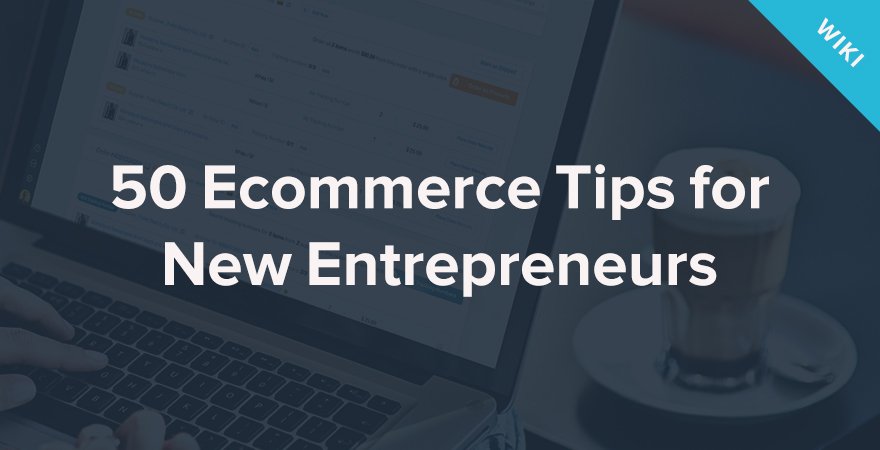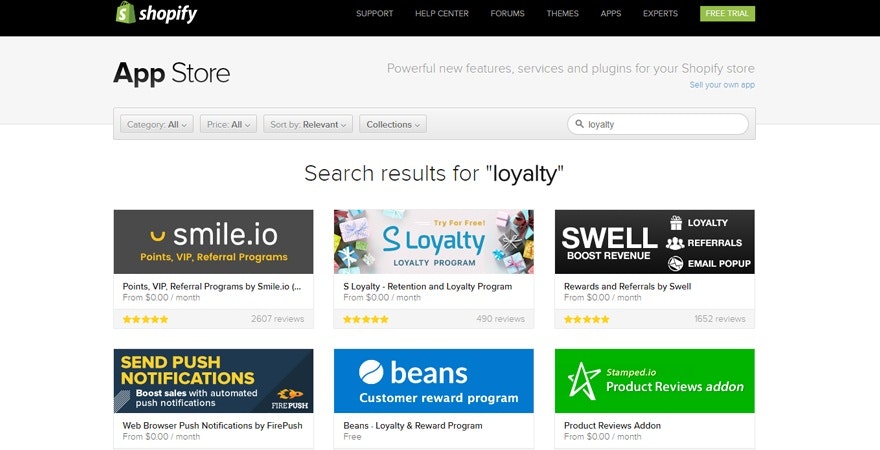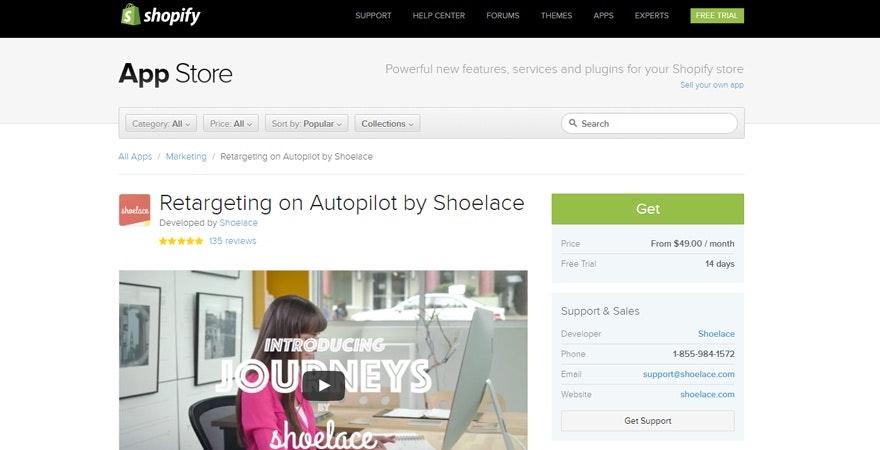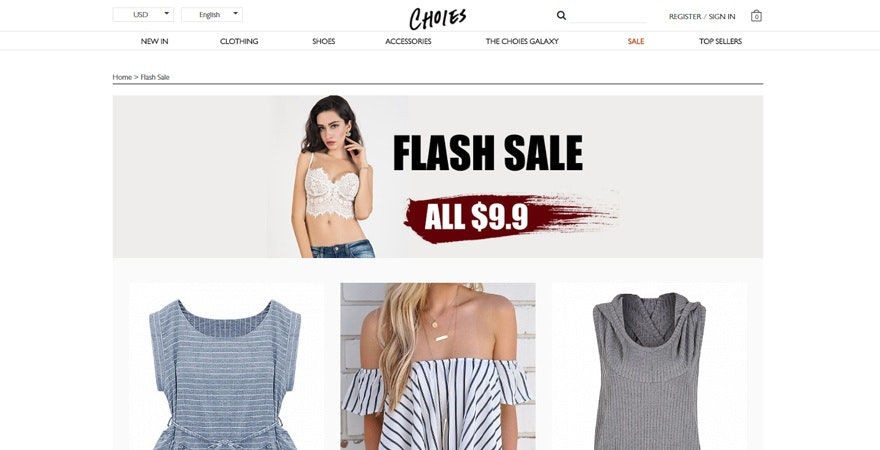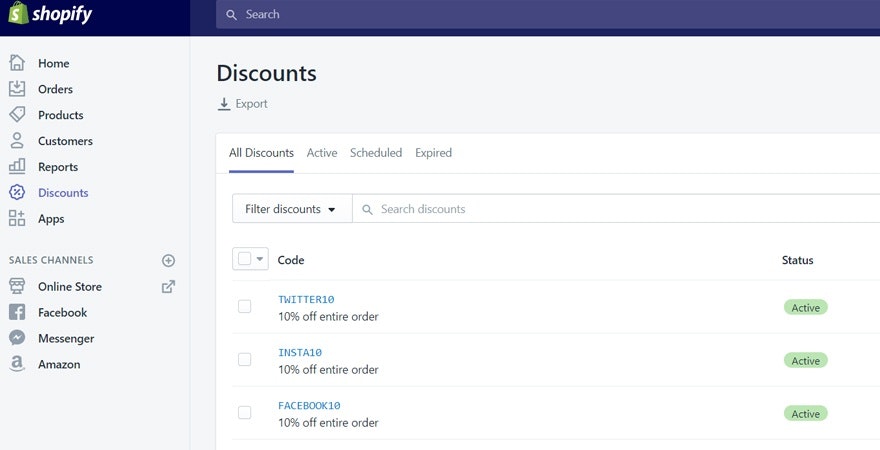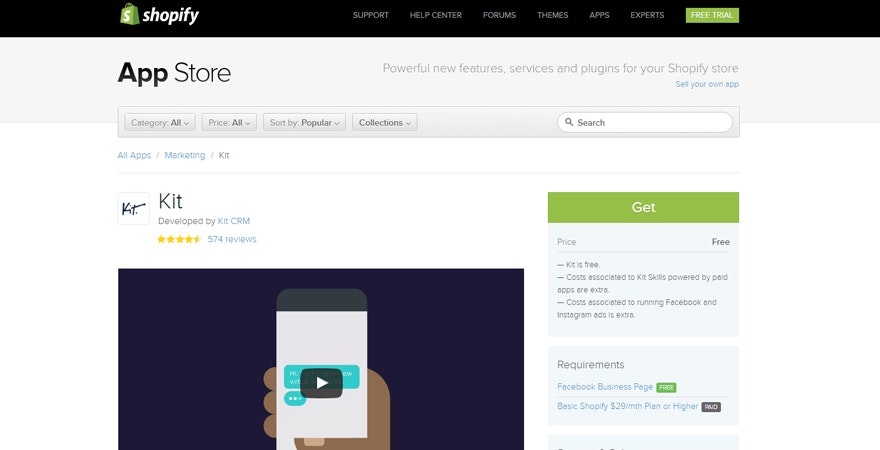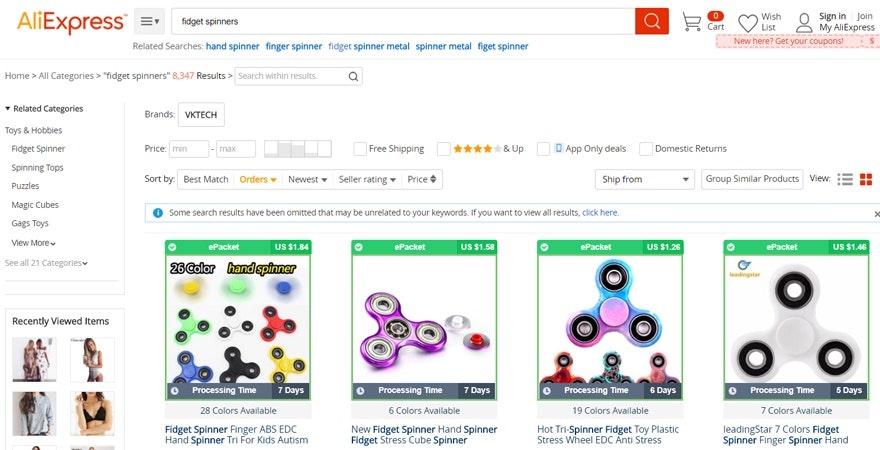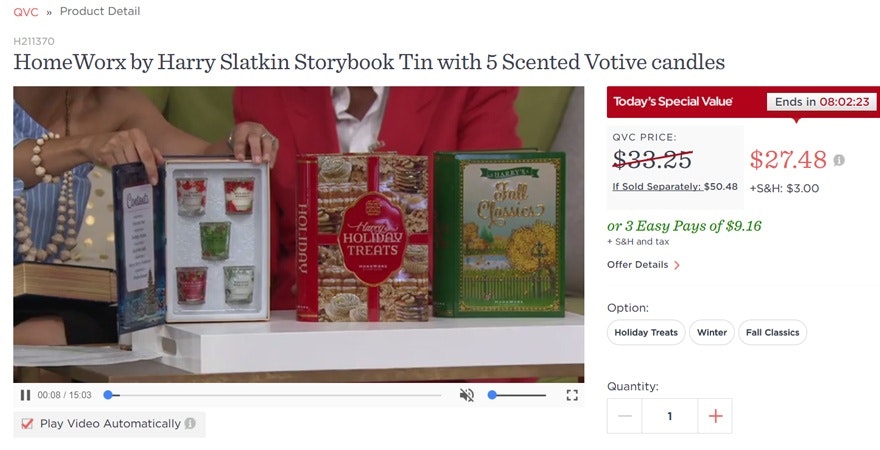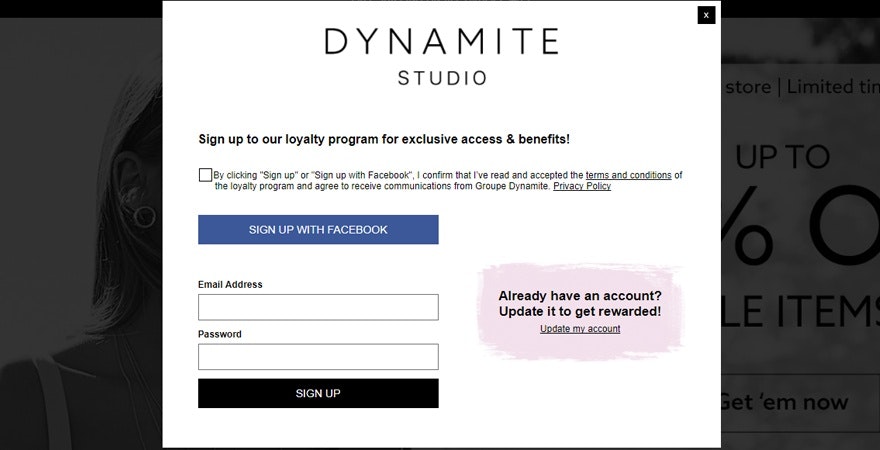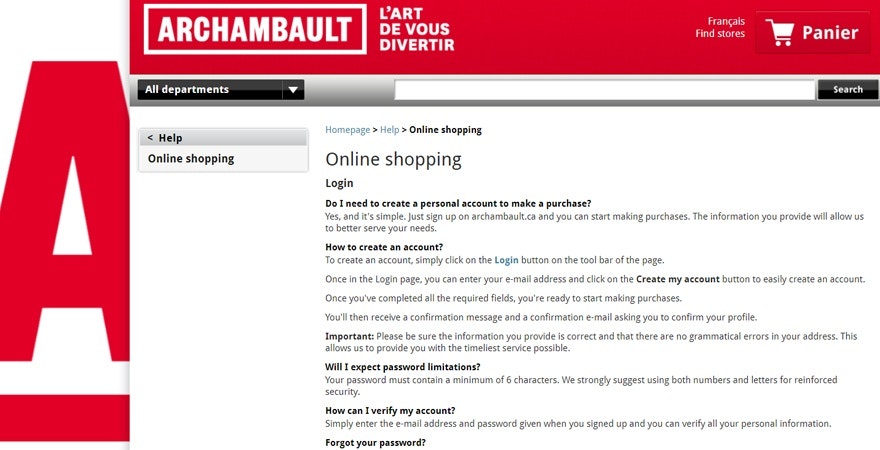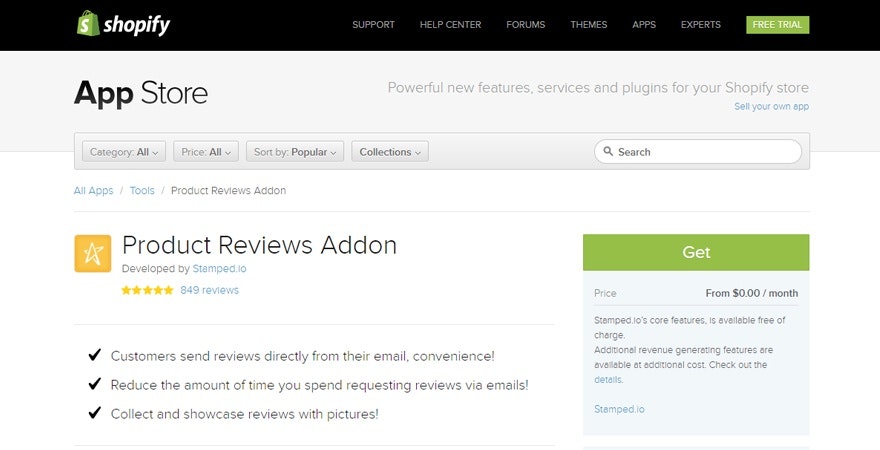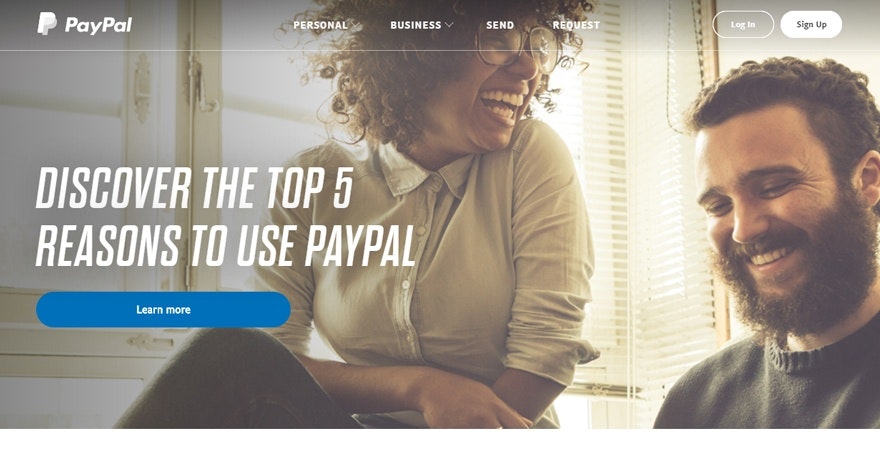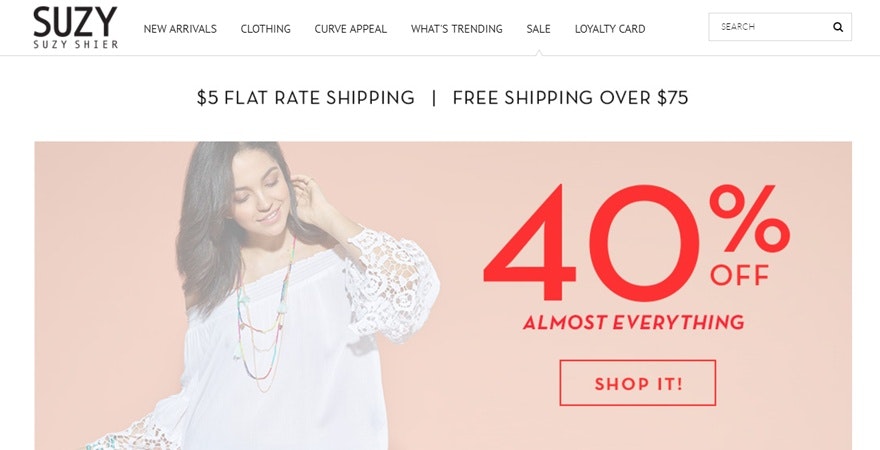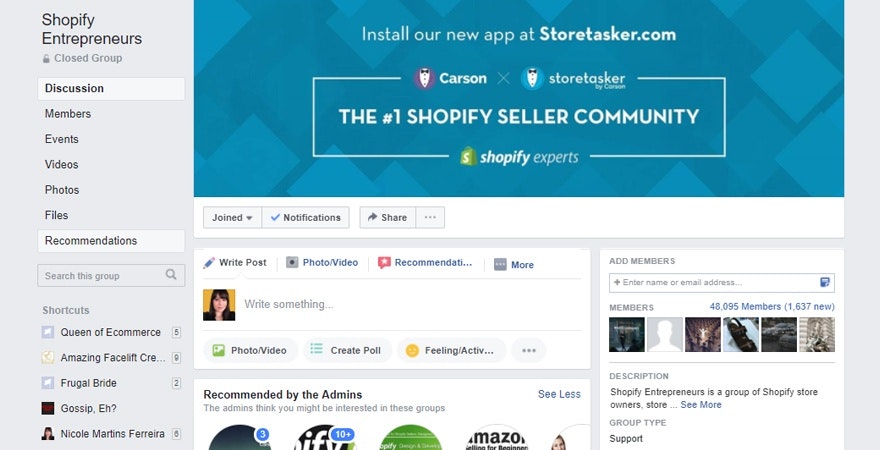Congratulations on becoming a store owner. Building your own business is a fun experience that pays off – literally. Being a new entrepreneur is exciting because everything is new. However, sometimes, new entrepreneurs get a little too excited about the wrong things. As an experienced entrepreneur, I’ve made my fair share of mistakes. That’s why I created these 50 ecommerce tips for new entrepreneurs like you, so you can get on the right track from the beginning and actually make some money on your new store. I also recommend that you familiarize yourself with these ecommerce terms before proceeding to ensure you’re clear about everything discussed below.
Post Contents
- Ecommerce Tips (#1): Experiment like your business depends on it.
- Ecommerce Tips (#2): Don’t pocket the profits just yet.
- Ecommerce Tips (#3): Commit to a schedule for consistency.
- Ecommerce Tips (#4): Build out your channels from day one.
- Ecommerce Tips (#5): Start building relationships with relevant influencers.
- Ecommerce Tips (#6): Make sure customers have access to relevant information.
- Ecommerce Tips (#7): Put thought into your copy.
- Ecommerce Tips (#8): Make your website visually appealing.
- Ecommerce Tips (#9): Find an ecommerce brand to look up to.
- Ecommerce Tips (#10): Get feedback on your store.
- Ecommerce Tips (#11): Be specific with your product categories so customers can easily find exact products.
- Ecommerce Tips (#12): Be on multiple social media platforms.
- Ecommerce Tips (#13): Create unique content.
- Ecommerce Tips (#14): Offer free shipping.
- Ecommerce Tips (#15): Make marketing your main focus.
- Ecommerce Tips (#16): Create ads from day one.
- Ecommerce Tips (#17): Learn to recover abandoned carts.
- Ecommerce Tips (#18): Talk to your customers and get to know their needs.
- Ecommerce Tips (#19): Start building links.
- Ecommerce Tips (#20): Think of ways to put your customer on a pedestal.
- Ecommerce Tips (#21): Set SMART goals.
- Ecommerce Tips (#22): Don’t hide behind books.
- Ecommerce Tips (#23): Take advantage of free trials on apps to find the right ones for you.
- Ecommerce Tips (#24): Make sure you have upsell offers.
- Ecommerce Tips (#25): Make sure your store is finished before you start selling
- Ecommerce Tips (#26): Market your store beyond ads
- Ecommerce Tips (#27): Always have retargeting ads running
- Ecommerce Tips (#28): Share your customer’s photos
- Ecommerce Tips (#29): Add a flash sale section
- Ecommerce Tips (#30): Use Automizely to find millions of products
- Ecommerce Tips (#31): Add your discount codes to a discount code site
- Ecommerce Tips (#32): Outsource your weaknesses
- Ecommerce Tips (#33): Automate as much of your business as possible
- Ecommerce Tips (#34): Pick a popular but reliable niche
- Ecommerce Tips (#35): Don’t compete on price
- Ecommerce Tips (#36): Create a blog and monetize it
- Ecommerce Tips (#37): Create product videos
- Ecommerce Tips (#38): Create a loyalty program
- Ecommerce Tips (#39): Make shopping online easier
- Ecommerce Tips (#40): Always use ePacket shipping
- Ecommerce Tips (#41): Build out your email list
- Ecommerce Tips (#42): Create an FAQs page
- Ecommerce Tips (#43): Get product reviews
- Ecommerce Tips (#44): Take your own product photos when necessary
- Ecommerce Tips (#45): Optimize your store for niche keywords
- Ecommerce Tips (#46): Visit your city’s business centre
- Ecommerce Tips (#47): Pick the right payment gateway
- Ecommerce Tips (#48): Improve your top navigation
- Ecommerce Tips (#49): Join a Facebook group for support
- Ecommerce Tips (#50): Just start… right now.
- Want to Learn More?
Ecommerce Tips (#1): Experiment like your business depends on it.
To really succeed, you’re going to need to experiment a lot. You’ll need to create ads for different products. Test different copy, formats, and images. Experimenting with ads is what will eventually bring in customers and drive sales. Once you’ve created profitable ads you can start experimenting on your website. Many people focus on improving their website first. However, you don’t know how customers are responding to certain features if you don’t have any yet. Avoid making assumptions about your customers. Be open to being wrong about what really works – you won’t know the truth until you look at the data.

Ecommerce Tips (#2): Don’t pocket the profits just yet.
It can be tempting to keep any profit you make. However, if you want your business to grow, you’ll need to reinvest money into your business. Money makes money. Instead, of making a purchase to buy new equipment, spend your profit on advertising. You’ll probably want to create several $5 ads at first to see which product people respond to best. However, once you’ve found your winning product, you’ll need to spend a lot more than $5 to make the kind of money people dream of.
If your goal is to make $3000 profit each month, you’ll need to spend about $3000 on ads, which will bring in roughly $9000 in revenue. Boosted Facebook posts convert best for my business but you’ll need to find the type of ad that works best for you. By reinvesting the profit for several months, you give your business a chance to grow and become sustainable. Eventually, you’ll be able to live off the money you’re making.
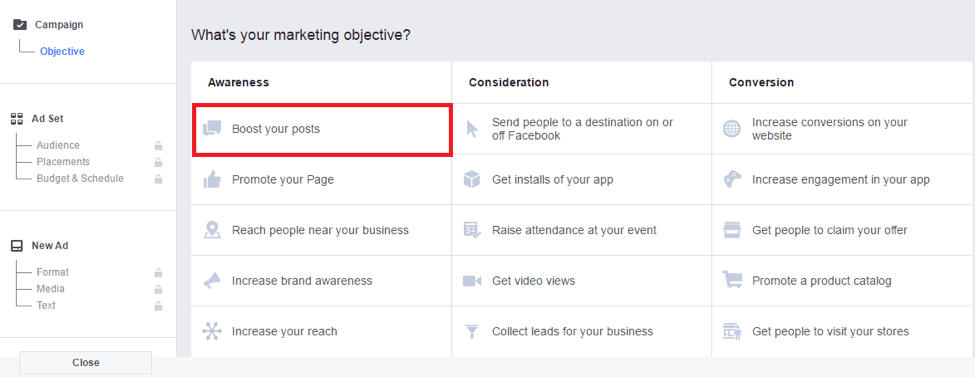
Ecommerce Tips (#3): Commit to a schedule for consistency.
When starting a new ecommerce store, you’ll want to follow a consistent schedule so that your customers can know when to check back. For example, if you add new products each week, you should do it on the same day of the week so people check back on your website on that day every week. If you commit to a blog, adding posts on the same days will encourage people to keep checking back. As soon as you become inconsistent, you start to lose your customer loyalty.

Ecommerce Tips (#4): Build out your channels from day one.
As soon as you’ve bought your store domain name, start building out an audience. You might start with posts on social media to grow a fanbase so that when you launch you have an audience ready to buy. Once your store is launched, you’ll want to start collecting email addresses and building referral traffic. By doing this from day one, you’ll grow your customer base faster. By focusing on building out your social media, email list and referral traffic, you’ll likely need to spend less on ads over the long-term. You’ll be able to promote your content to your audience through your own channels.
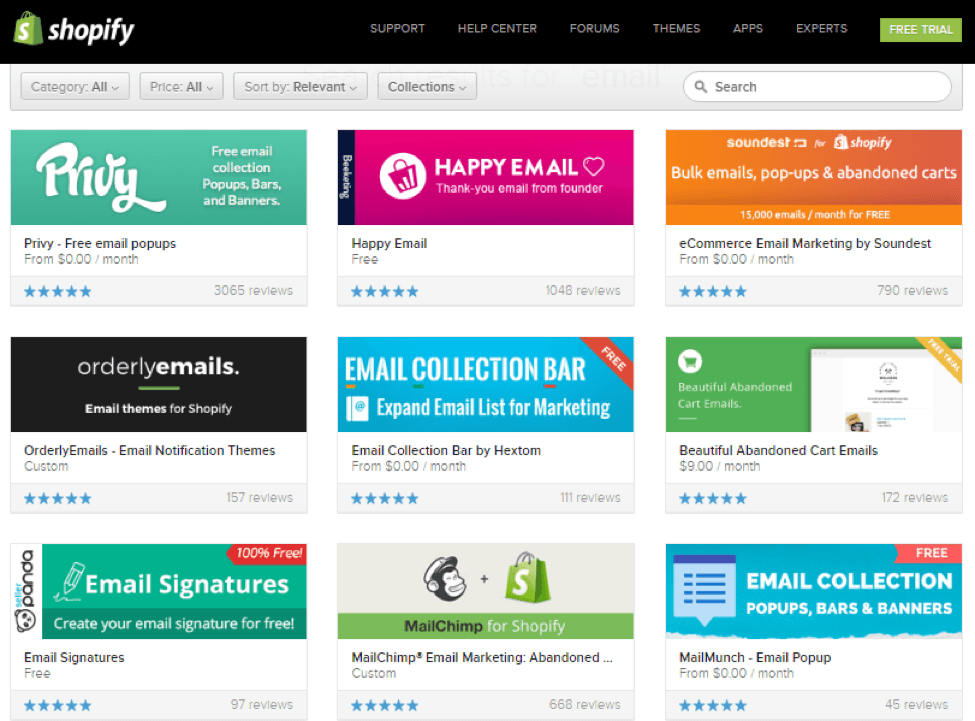
Ecommerce Tips (#5): Start building relationships with relevant influencers.
It takes a few months to find the best influencers to promote your products and even then it’s not guaranteed. From personal experience, I found a great influencer to promote my products and less than six months later they had been doing so many sponsored posts that they were no longer effective. Finding a great influencer is a lot harder than it looks. Sometimes an influencer has a high price but it doesn’t convert to sales. You might want to check out Famebit for access to the best influencers.

Ecommerce Tips (#6): Make sure customers have access to relevant information.
When starting an ecommerce store you’ll want to make sure your customers have access to everything they need to make an informed purchase. You’ll want to include shipping and return information so that customers are aware of the policies before their purchase. You’ll always want to make sure you have a visible contact page so that customers can easily contact you should an issue or question arise. A great resource that covers everything you’ll need to complete on your website is our How to start an eCommerce Store in Less than 30 Minutes post.
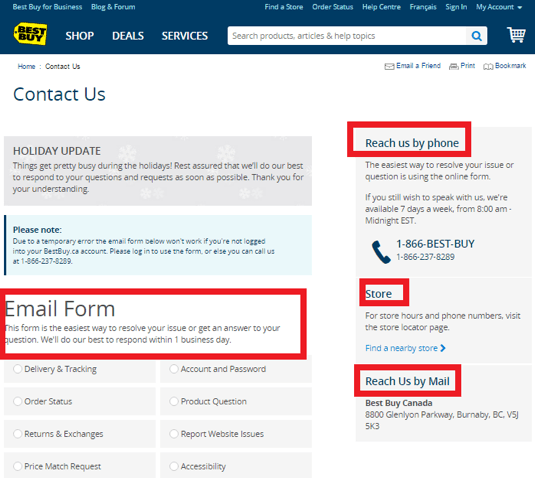
Ecommerce Tips (#7): Put thought into your copy.
Many store owners make the mistake of not adding copy when importing products in their store. The bullet points listed are there to give you product details yet don’t help convert sales on their own. Writing a description about the product and selecting the most valuable bullet points will better help you achieve more sales. People often read the copy if they’re on the fence for a product. By writing a short paragraph detailing how the product benefits your customer, mentions features while also explaining how to use the product you’ll be better able to persuade your browser into purchase. For example, if you sell dresses on your store you might mention how great they’ll look at their next event, you might mention how the fabric showcases their figure and recommend shoe colors or jewellery looks that would best complement the dress.
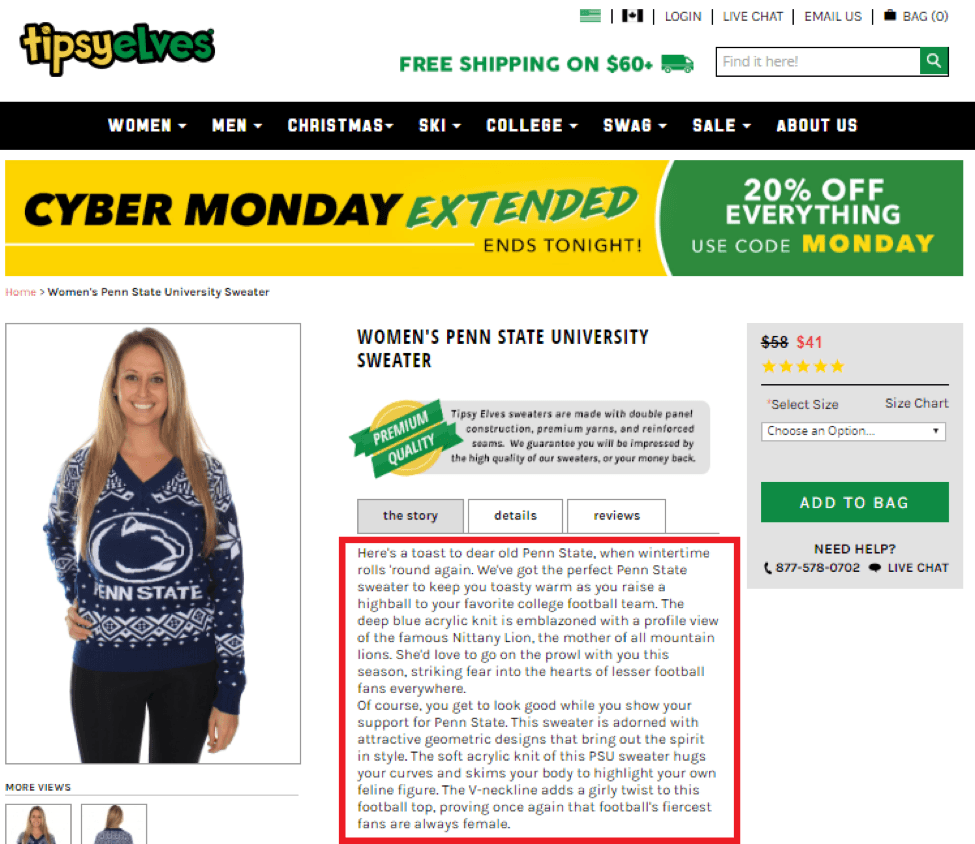
Ecommerce Tips (#8): Make your website visually appealing.
Your entire website should be very visually appealing. Product pages should have multiple product images showcasing different angles and uses. Your homepage should have an attention grabbing banner image that allows the customer to picture themselves with the product. Even your blog posts should be very visual. You should have several images, gifs and maybe even a video in each post to separate bodies of text.
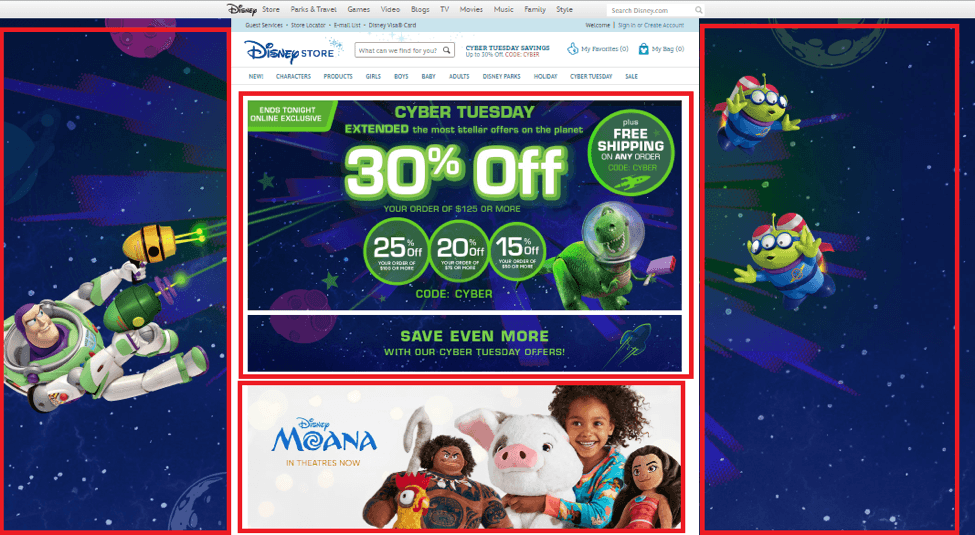
Ecommerce Tips (#9): Find an ecommerce brand to look up to.
When starting out it’s important to seek a mentor. However, sometimes having access to successful ecommerce mentor can be hard. People don’t necessarily want to share their niches, ad templates and answer questions that can be easily Googled. You can join communities to seek advice on occasion. However, the most effective way to succeed is to find an ecommerce brand you aspire to be like and model your brand after them. For example, if you want to be a customer-centric business you might model your store after Disney. If you want to master the art of branding you might model your business after Dollar Shave Club. If you want to create a mega marketplace you might model your store after Amazon. You don’t need to copy their niches or style to succeed, you just need to find the patterns you love about a particular online store and apply them.
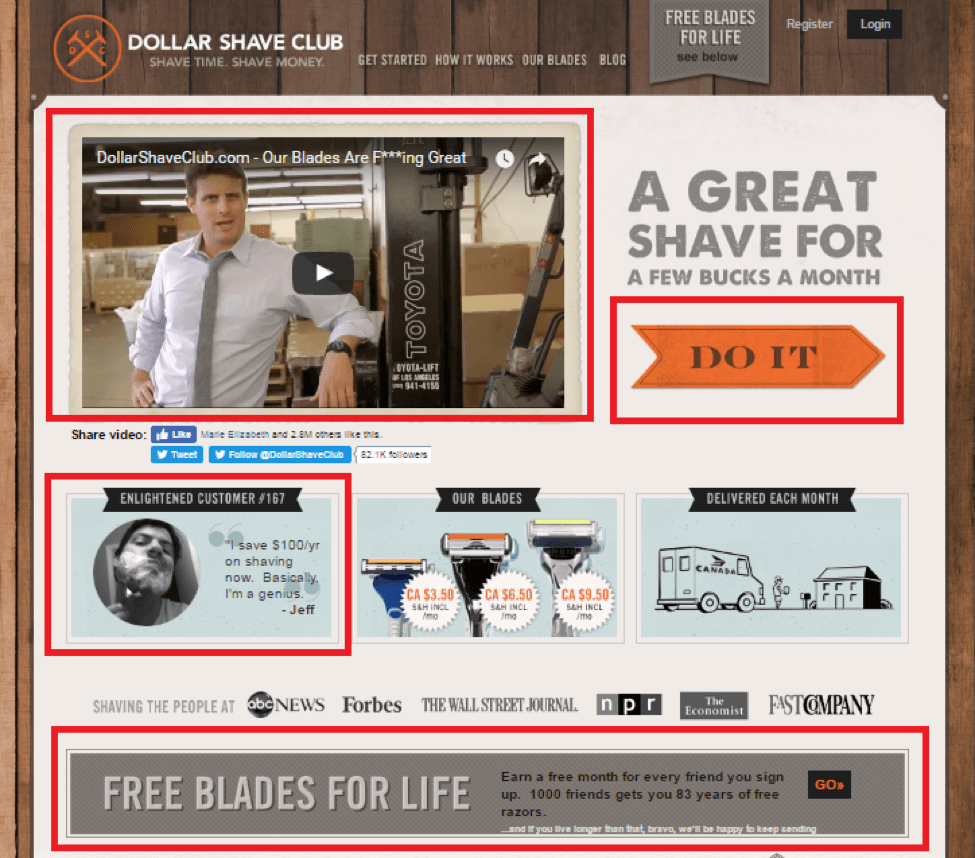
Ecommerce Tips (#10): Get feedback on your store.
When you launch your new store, it’s important to get feedback on it. The biggest mistake I see entrepreneurs making with this is that they seek feedback from other entrepreneurs in public communities. The problem with this is that you’re sharing your niche and products with your competitors. While an entrepreneur can give you great insight, you don’t want to rely on feedback from people who might actually be competing with you. Never reveal your niche to another entrepreneur. You can always reach out to Shopify support to get a store review.
Ecommerce Tips (#11): Be specific with your product categories so customers can easily find exact products.
In the early stages when you only have 15 products it can be tempting to lump all of your products into generic categories. However, as you grow your store, you’ll want to be a bit more specific in your product categorization. Having product categories such as ‘Women,’ ‘Men’ and ‘Children’ don’t do much for SEO purposes and yet they’re common to find on many stores. What’s worse is that some stores lump all of their women’s fashion under ‘women’ with no subcategories at all. Most people don’t like browsing an entire collection to find out that they don’t have dresses in their store. Look at how Amazon organizes their product categories. You can find very specific items with ease. The easier you make it for a customer to find exactly what they’re looking for the more likely they’ll buy from your store.
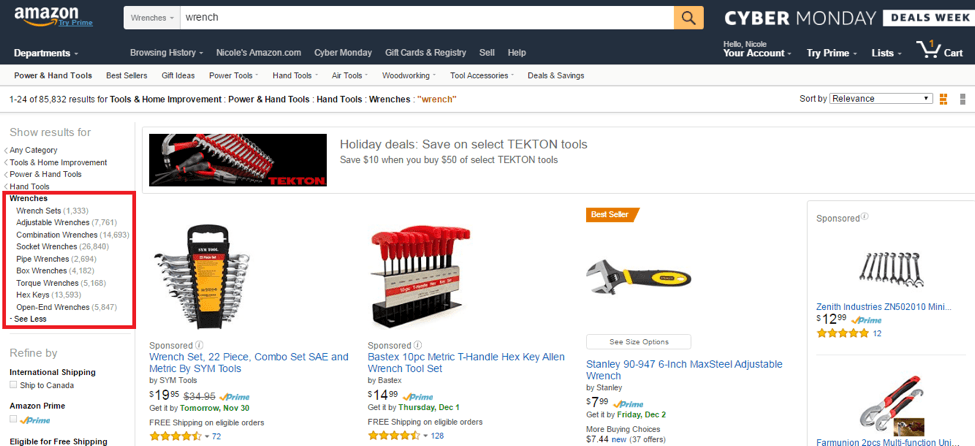
Ecommerce Tips (#12): Be on multiple social media platforms.
When it comes to social media, many stores make the mistake of only being on one platform. For example, some may only post on Instagram and focus their marketing efforts on there through influencer marketing. Others are exclusively on Facebook as they find Facebook ads works great on their store. However, using a combination of platforms might be slightly more work but gives you a competitive advantage. A competitor can see you’re only on Instagram and focus their efforts on a wider range of social platforms which eventually leads to their business out-performing yours. Being on about 3-4 social networks is often manageable. Don’t depend on one platform as one day that platform may disappear and you’re left with nothing.

Ecommerce Tips (#13): Create unique content.
If you’re dropshipping products, odds are you need to find a way to stand out among your competitors. The easiest way to do this is by creating unique content. Pumping out blog posts several times a week is a great way to build an audience, educate visitors while keeping your website looking fresh and up to date. You can also create videos online to build your brand. Luxy Hair created YouTube videos which led to their massive success. Today their YouTube channel has over 2.9 million subscribers. Unique content can make your business much more profitable.
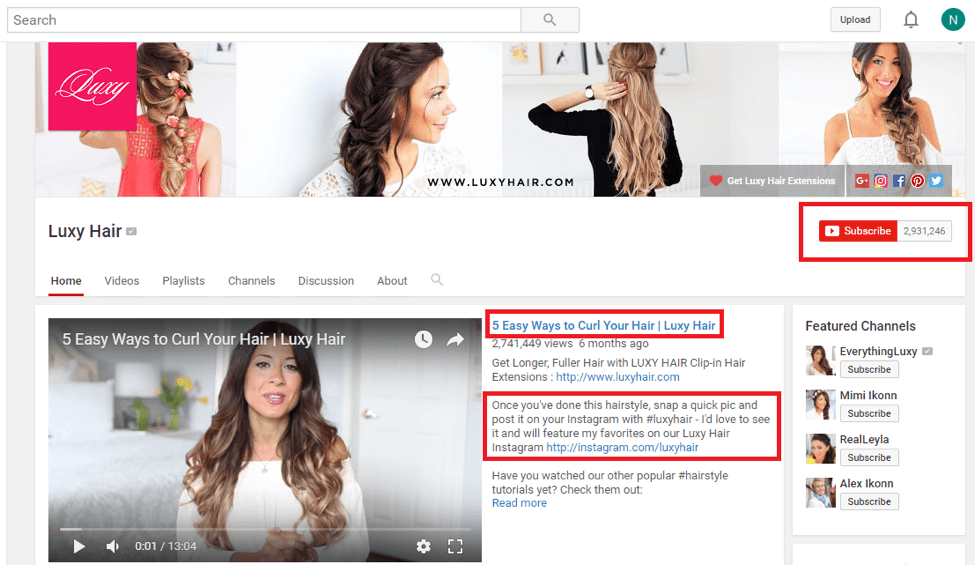
Ecommerce Tips (#14): Offer free shipping.
It’s important to test free versus paid shipping. Yet, when you have a new store with a small social following, it’s better to offer free shipping to incentivize the purchase. People may be weary of paying a company they don’t trust yet so offering free shipping makes it a smaller risk. About 50% of online stores offer free shipping which puts you at an advantage over the others when you offer it. With AliExpress, many suppliers offer free shipping or ePacket which is a low cost express shipping service, which allows you to offer afforable shipping without a huge impact on your margins.
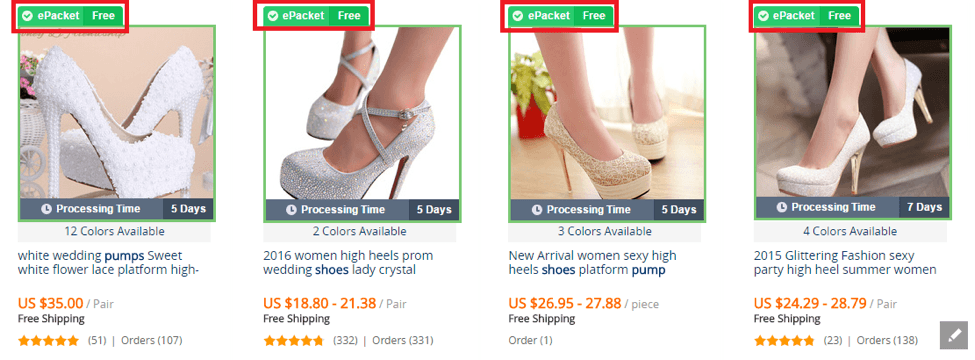
Ecommerce Tips (#15): Make marketing your main focus.
Marketing and advertising bring in the money so don’t waste your time on perfecting your store. You should be actively posting on social media daily, if not several times a day. Next, you should be contacting magazines and blogs about featuring your products. Don’t forget to also create a budget for advertising. Writing blog content regularly will help your website rank. By putting your store out there, you better your odds of finding more customers.

Ecommerce Tips (#16): Create ads from day one.
Ads bring in the traffic that converts into customers. You’ll need to experiment with different products to find your winning ad, however, once you do its smooth sailing. If your goal is to make $9000 in revenue you’ll need to spend about $3000 in ads. The startup ad costs will be difficult at first so feel free to start a smaller budget and build up to it. Remember it takes 3-5 days for an ad to optimize.
If you keep reinvesting your profit into your advertising your business will grow quickly. Within about 2 months, one of my stores was making $15000 in revenue a month and growing each day. It takes a few weeks to figure out which products will be your best sellers and to figure out if your product price is sustainable for ads. You can use this dropshipping traffic calculator to better understand how much traffic you need in order to reach your financial goals.
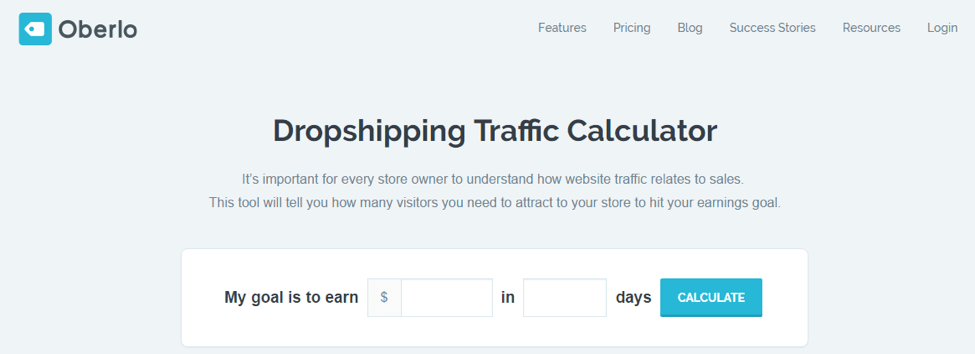
Ecommerce Tips (#17): Learn to recover abandoned carts.
Experiment with different abandoned cart apps and email formats. You won’t be able to recover every cart. However, even if you can convert between 1-5% of them, you’ll be better off financially. The abandoned cart rate, on average, falls between 60-80%, according to Baymard. While it may be normal to experience abandoned carts, you shouldn’t stop doing everything you can to make the conversion happen. You should have the first email sent within six hours of the cart abandonment to better help the conversion. Consider also sending at least 3 emails afterwards trying to recover it. You can offer an additional discount to help convert the sale. You could start with a 10% discount and in your last email offer a 15% discount if they haven’t recovered it yet.
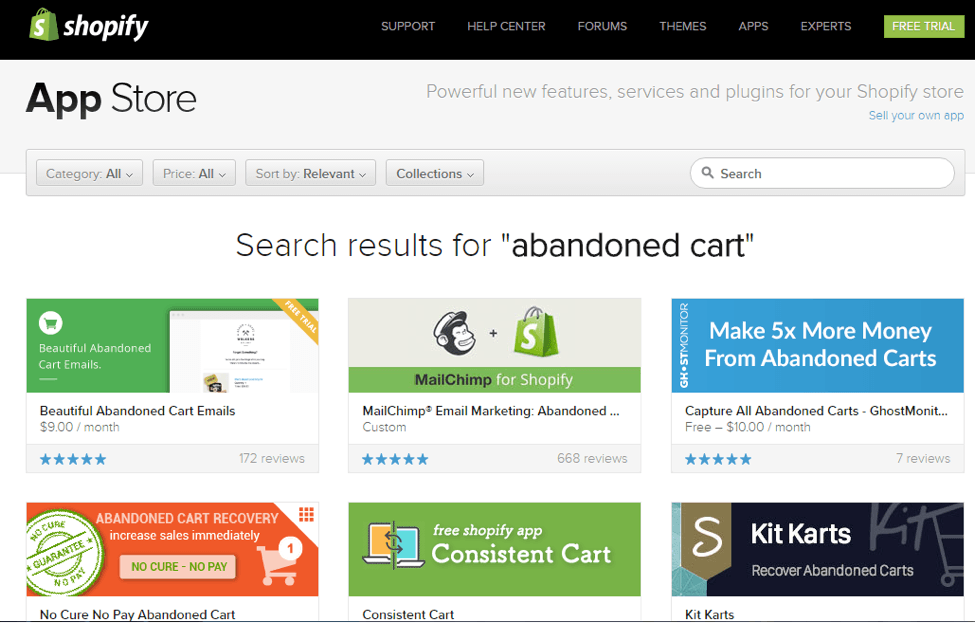
Ecommerce Tips (#18): Talk to your customers and get to know their needs.
Building relationships with customers is time consuming but really important to do. A simple thing I do to get better insight into my customers is email them individually. I’ll manually email each customer and ask them how they’re enjoying the product they purchased, if there are any other types of products they wish our store had and if there’s any type of blog content they’d like to learn more about in the niche. I might throw in a VIP discount code as a thank you for their feedback in the first email I send as an extra incentive to provide this information. Not all people will reply, but the ones that do, will help you better understand your customer’s needs. It also helps you better serve them.
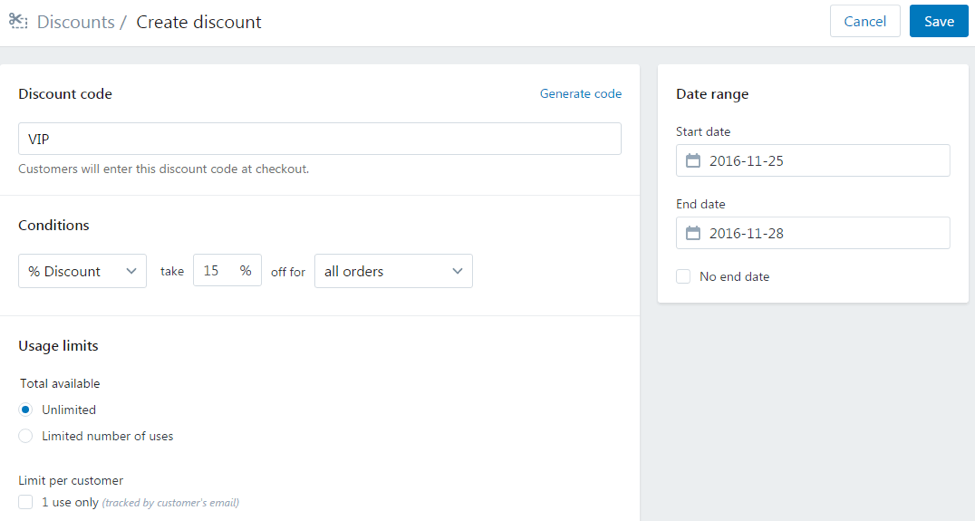
Ecommerce Tips (#19): Start building links.
To reduce ad spend while increasing revenue, it’s important to build external backlinks. You can do this by promoting your products on relevant and popular blogs or magazines or by writing guest posts on blogs. The more sources you have driving traffic to your website, the less you’ll spend on ads. For example, even if you write a guest post on another blog, you might not be featuring a specific product but you may get clicks to your website. Once you’ve gotten clicks to your website you can retarget them with your best selling product which will be a lot cheaper than trying to find new customers. When my store was days old, I was able to get a couple of sales using this method.
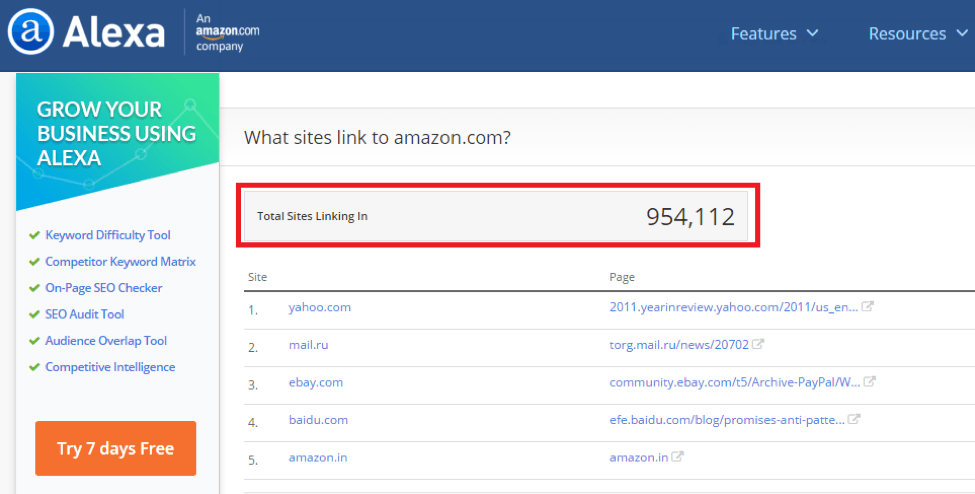
Ecommerce Tips (#20): Think of ways to put your customer on a pedestal.
If you treat your customers right, they’ll keep coming back. Stay in touch with your customers. Show them that you appreciate them. You can host a ‘Customer Appreciation Event’ where you give them first access to new products or an additional discount. Sending them thank you notes letting them know how grateful you are that they’re a customer while giving a small free gift or discount code goes a long way. Brainstorm things you can do for your customers that’ll make them happy while strengthening your relationship with them. Check out Help Scout for more customer appreciation ideas.
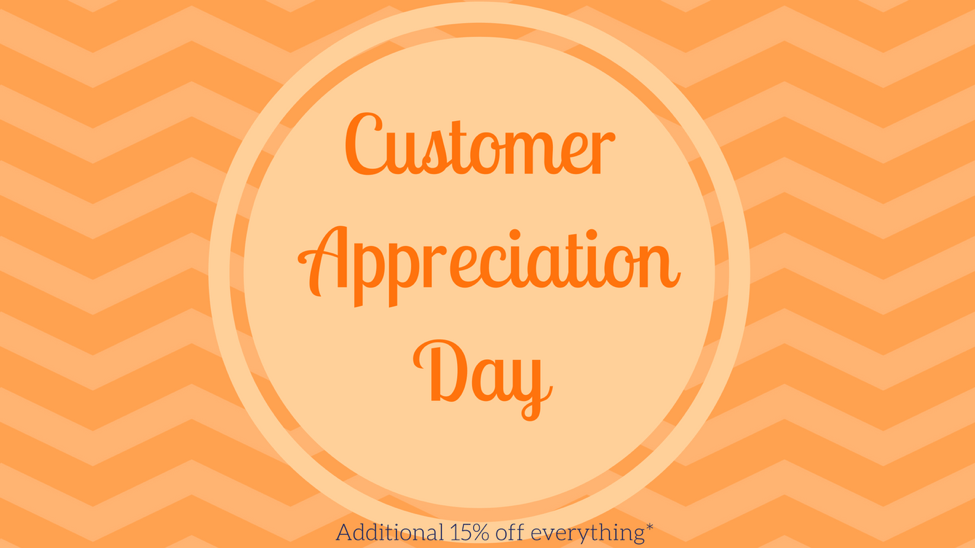
Ecommerce Tips (#21): Set SMART goals.
Whether you’re planning a financial goal or milestone for your store, it’s important to make sure that you have a SMART goal. SMART stands for Specific, Measurable, Attainable, Realistic, and Timed. You want to ensure that your goals are well-defined. Make sure you set timelines to know when your goal should be achieved. by You need a goal that is founded in logic and that you have the resources you need to make the goal attainable. Lastly, you want to make sure that you set a time frame that allows you to achieve the goal without any extra time allocated. An example of SMART goal would be: Make at least 10,000 in revenue in one month by December 31, 2021.

Ecommerce Tips (#22): Don’t hide behind books.
Procrastination is a funny thing because sometimes people don’t even realize they’re doing it. It’s great to be active in ecommerce communities, read blogs and take the occasional online course. However, you need to realize that you can’t hide behind your books. You need to work on your store. The sales aren’t going to come in if you spend more time “researching” than working. You’re going to learn so much more by trying something out and Googling the next step when you get stuck.
You’re going to start succeeding after you’ve made a few mistakes. Mistakes give you clues about what success should really look like. So figure it out as you go along, bang your head against the wall if you have to and keep working at it until you hit your financial goals. You’ve got what it takes to succeed on your own. I believe in you, so you should believe in you too.

Ecommerce Tips (#23): Take advantage of free trials on apps to find the right ones for you.
As a new store owner, experimentation plays a big role. I highly recommend trying and testing out the free trials of several apps in the Shopify App Store. Figure out which apps are most useful now before you get even busier running your store. Of course, you’ll want to ensure that you have traffic and sales coming through to figure out which apps are most effective. I recommend starting with apps that help grow your business like upsell and abandoned cart apps.
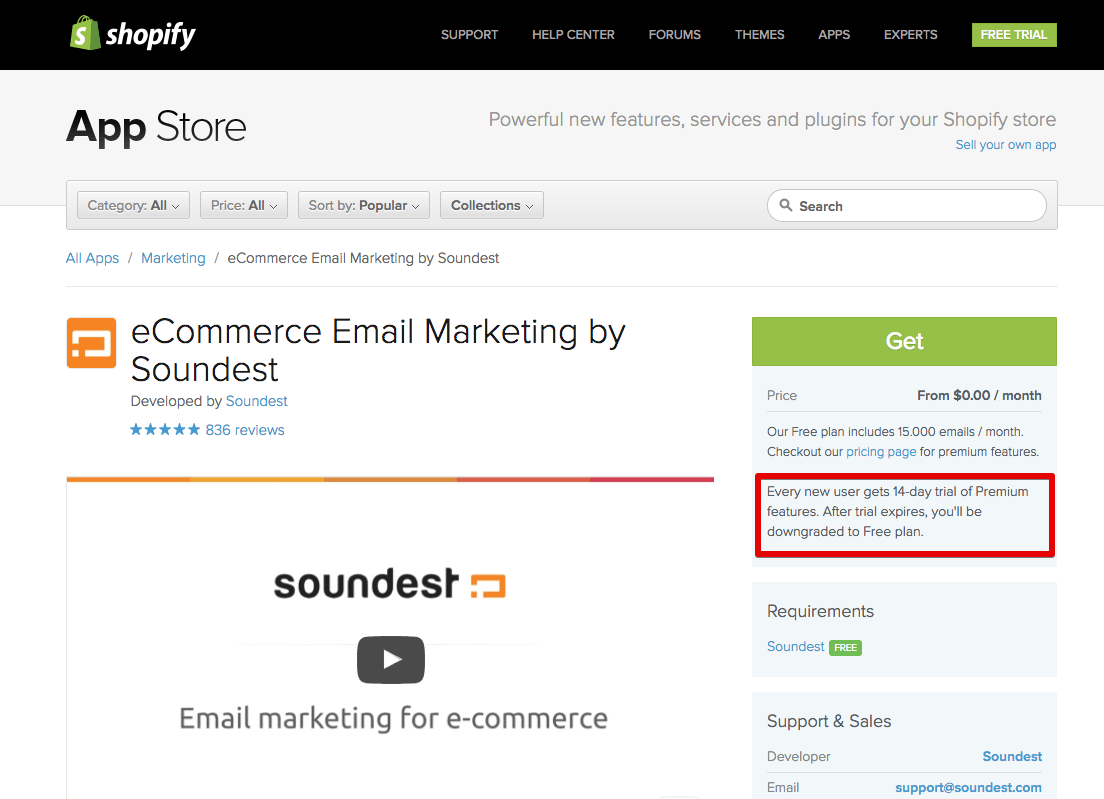
Ecommerce Tips (#24): Make sure you have upsell offers.
Getting your first sale can be very exciting. However, if you have upsell offers on all of your products from day one, you prevent missing out on easy sales. Customers who already have their credit card out are a lot easier to sell more products to than trying to attract new customers. Not only will you increase your average order value, but you’ll also make more profit per customer making your ad spend even cheaper. A trick I do on my store is that I provide a similar product as an upsell and throw in a free + shipping gift if they purchase now. My store has multiple upsell purchases each day – it’s one of the factors that helped us become a 5-figure a month store so quickly.
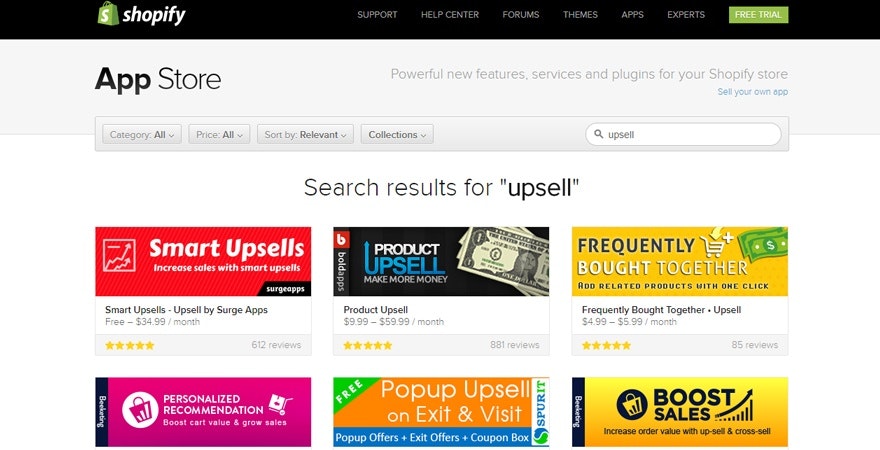
Ecommerce Tips (#25): Make sure your store is finished before you start selling
When someone launches an online store for the first time, they often fail to complete several steps in the process. The biggest mistake I’ve seen store owners make is having an empty homepage. Don’t forget to fill in placeholder text with your own copy, logo and add graphics to your homepage. You’ll also want to make sure you have products categorized properly (such as dresses, skirts, etc) rather than grouping everything together without categories. Adding contact information, refund policies and shipping details is also important to include on your website. While it’s amazing how excited you are to start selling, it’s important to make sure your website is optimized to ensure that you land sales. Having a finished store, will allow your customers to feel confident purchasing from your new store.
Ecommerce Tips (#26): Market your store beyond ads
There’s a good chance that your ads will be one of your store’s biggest money makers. But you don’t want to limit yourself to monetizing via Facebook, Instagram or Google alone. Take the time to drive traffic to your ecommerce store through search engine optimization, pitching your products to blogs and popular magazines, creating content, being active on social media, email marketing and more.
Marketing goes far beyond just creating ads. The more you put your brand out there, the more sales you’re likely to get. Build up your organic traffic by optimizing pages for keywords. Create a list of popular publications and blogs within your niche and start contacting them about featuring your products. Build up your audience on social media by using hashtags, posting multiple times a day and sharing valuable and entertaining content. Build up your email list and regularly send promotions to your customers. Create a loyalty program where you offer special discounts to loyal customers.
Ecommerce Tips (#27): Always have retargeting ads running
My store was only a couple of days old when I started using retargeting ads, a type of ad that’s shown to people who’ve visited your website before. We were pumping out a ton of content on our blog and featuring influencers in it. When influencers shared the content with their audience we had a surge in traffic. We showed a retargeting ad to our customers with our most popular product and it landed us sales. We had a 9x ROI for our ads. In your store’s early days you’ll land a few abandoned carts. By retargeting your add to carts, you can try to win-back lost customers. It actually converts better than most abandoned cart emails too. Your retargeting ads will generally have a low cost but it helps convert customers who weren’t ready to buy the first time around.
Ecommerce Tips (#28): Share your customer’s photos
As you start getting your first few sales, ask your customers to take pictures with your products. You can also reach out to friends, family or influencers to take pictures with some of the items from your online store. If you sell apparel or other accessories, getting as many pictures of people using or wearing your products can help give you social proof. Customers want to see what the actual product looks like received rather than what it looks like in a touched up picture. Contact your customers and ask them to share their pictures with you on social media. If you pay influencers for their pictures, you can use them for your ads. Avoid using your customers’ pictures for ads, but feel free to share them on social media or add them to your website. Always give your customer credit by tagging them in the photo.
Ecommerce Tips (#29): Add a flash sale section
Urgency can help increase your store’s sales. One of the easiest ways to do this is to add a flash sale section to your store. In this section, all of your products should have a countdown timer on them. The products you add should be rotated once a week so that you always have a new selection of products to keep customers coming back for more deals. You can add a Flash Sale section to your top navigation so that people can easily find your sale products. Aim to make it the last category in your top navigation as the first and last categories get the highest number of clicks.
Ecommerce Tips (#30): Use to find millions of products
You can use apps like Automizely to find millions of products that you can add to your store. From fashion to home decor, you’ll find products from nearly every dropshipping niche. And with one-click imports, you can add products to your store with a click of a button.
Ecommerce Tips (#31): Add your discount codes to a discount code site
For many online shoppers, product price matters. They’ll use tools and apps to find discount codes to save even more money. You should always price your products high enough that you can afford to give a discount to customers without taking a loss. You can hire someone on Fiverr to submit your discount code to the most popular sites. This allows customers to land the discount for your site to ensure the sale. Some stores include an offers page in their top navigation or footer where they include discount codes for their store. You might also want to have discount codes included on your social media such as ‘FB10’ or ‘INSTA15.’ Customers will be excited that they’re saving money and getting a great product. And you’ll be landing the sale making it an all-around win.
Ecommerce Tips (#32): Outsource your weaknesses
When it comes to running a business, there will be things you can do better than everyone else and things that everyone else can do better than you. While being an entrepreneur requires you to be a jack of all trades, there will be some task that you struggle with. Whether it’s writing great product descriptions, accounting, or marketing, you need to make sure that you’re doing what you’re best at. Find someone to do the things you’re the worst at. Collaboration is the secret to success. Work with others who are strong where you’re weak. If you stick to what you’re great at, you’ll see a greater return on your business. If you outsource your weaknesses, you’ll create a balanced and profitable business.
Ecommerce Tips (#33): Automate as much of your business as possible
Use ecommerce automation tools to simplify your business. Shopify tools like Kit allow you to automate order processing and marketing in only a couple of clicks. The more of your business you can automate, the more time you’ll have to focus on generating sales or living a lifestyle of freedom and flexibility. Be the store owner, not the employee. You don’t want to be the person running the business as it can eat away at your time. Be the person who owns the business, makes the money and lives life on her own terms.
Ecommerce Tips (#34): Pick a popular but reliable niche
Starting a trendy store is risky. First, most people discover a trend when it peaks. So your sales likely won’t go up. Second, it’s hard to know whether or not something is hot right now or if it’s going to stick around. For example, fidget spinners quickly exploded in popularity and eventually started to die down. On the other hand, when leggings first emerged, no one was really sure if it would last. We still see a huge market for leggings within fitness and fashion.
When it comes to picking the right business ideas for your new store, you want something that you can count on for years to come. If there’s a trendy product, add it as a product collection to your store to capitalize on sales. But don’t base your entire store on a short-term trend. Focus on evergreen niches that stand the test of time such as fashion, fitness, pets, phone accessories, beauty or jewelry. Trends will emerge in these niches allowing you to cash in on best-sellers. But your business is more likely to survive year one, two and five if you stick to popular, stable niches.
Ecommerce Tips (#35): Don’t compete on price
One of the most important ecommerce tips is that you have to stay profitable no matter what. Don’t fall into the trap of outpricing your competition, it’s a losing battle. You won’t win. Customers will pay fair market value for products. Sure, they love a great deal. However, whoever markets to that customer first usually wins. If you’re dropshipping on Amazon, the best price wins. If you’re running ads on Google where other dropshippers are selling the same product, the best price wins here too. However, if you run Facebook ads, are featured in a blog or are found organically on social media, if they find your product first, you will likely win the sale. Always find the workaround. If you hit a roadblock where you’re forced to give up your profit, find another path where you don’t have to.
Ecommerce Tips (#36): Create a blog and monetize it
Starting a blog on your ecommerce store can help you educate your customers, find new customers and make more money on your store. Building out your blog content brings in more traffic to your store organically through SEO and social media. You can use retargeting ads to monetize the audience to show them your product since your niche content brings in qualified traffic. Next, monetize your blog content through gift guides where you feature your best products as gifts for special occasions and holidays. You can also make money blogging by embedding relevant product links into your content.
Ecommerce Tips (#37): Create product videos
Videos can help boost conversions and increase sales for your store. Creating product videos has a two-fold purpose. First, you can add product videos to your product page to show different product angles or demonstrate how to use your product. Second, you can use the product video as a marketing tool. Facebook video ads are showing high levels of engagement, click through and purchases. While creating video content can be time consuming, it ultimately helps you grow your sales effectively. It also gives your brand a competitive advantage as many brands aren’t pumping out a lot of video content, if any.
Ecommerce Tips (#38): Create a loyalty program
Creating a loyalty program for your store helps retain your customers. While you should always try to find new customers, it’s more affordable and rewarding to keep the customers you already have. The goal is to grow your repeat purchases. Customers who are loyal to your brand will keep coming back while outspending new customers. Over the long-term, the more customers you can keep the more money your business will save and make. Whether you’ve invested in ads or some other form of paid marketing, you made a financial investment to acquire your customers. Why not make the most out of the customers you already have? You can follow the exact email template I use in the create a loyalty program article that has proven to be profitable.
Ecommerce Tips (#39): Make shopping online easier
The next important ecommerce tip is to take the steps to make online shopping easy for your customers. Make your website easy to navigate. Add product reviews so that customers can feel confident in their purchase. Ensure your images and copy represent the product accurately. Offer payment gateways that are trusted and popular. Have your site speed tested to ensure quick load times. Remove items that are out of stock. Add pages that’ll provide value to your customers such as shipping and return details.
Ecommerce Tips (#40): Always use ePacket shipping
Shipping costs can scare away a customer. If they’re too high, they might not purchase. If wait times are long, they could ask for a refund. With ePacket shipping, you solve two problems with one shipping method. It’s one of the fastest shipping service from China while having one of the lowest costs. Most products are only a few dollars to ship out allowing you to maintain a profitable business. While some products with ePacket shipping are free to ship. The best part is that you can easily choose products with ePacket shipping with the click of a button. You can choose to only view products with this shipping method to ensure your customers have a positive experience getting their product promptly.
Ecommerce Tips (#41): Build out your email list
Email marketing is an effective way to market your products to leads and customers. You’ll want to collect emails through an exit intent pop-up or lead magnet so that you can continue promoting your brand and products to your audience. You’ll want to spend time creating and testing subject lines to compel customers to open your emails to find your offers. Mentioning discounts in your subject line often works well for ecommerce businesses such as ‘50% off today only.’ Showcase your best performing products. When it comes to email marketing, you can also send VIP offers to your best customers, recover abandoned carts, and provide value by educating customers with relevant tips and tricks for your niche.
Ecommerce Tips (#42): Create an FAQs page
Your online store should have an FAQ page where you answer your most common customer questions. You can send the link to customers who ask common questions. But you’ll also reduce the number of support emails by having a page that answers their question. Questions about shipping times and costs, refunds, sizing, and other product related questions should be addressed on the FAQ page. If customers are regularly asking specific product questions, you might need to add more details to your product page.
Ecommerce Tips (#43): Get product reviews
Product reviews give your brand the social proof it needs to help lead customers through the sales funnel. As you start getting your first few sales, you should contact your customers or use a Shopify app like Product Reviews Addon to send out automated messages to customers. You can encourage customers to leave photo reviews on your product page. If customers share your product on social media, you can ask them to leave a review on your website and include their pictures. The more people you can show using your products to potential customers, the more customers you can build up. Knowing that others have bought and loved products from your store helps assure new customers in their purchase.
Ecommerce Tips (#44): Take your own product photos when necessary
With product sourcing apps, you can import any of the product photos onto your store. However, there may be times when you need to modify or take your own images. Product images might have logos which you’d want to remove to create a clean look. You might also want to take pictures in a different way to better convert. For example, a picture of your clothes on a flat surface with a white background, might not be as compelling as a lifestyle photo of your apparel being worn. You might also take your own photos to reduce the risk of image copyright to protect your brand. The product image is one of the most important parts that leads to conversion. Make sure your product photo is optimized to drive the highest number of sales through ads and directly on your product page.
Ecommerce Tips (#45): Optimize your store for niche keywords
Most online store owners focus on short-term money making tactics such as Facebook or Google ads or influencer marketing. However, one of the most important ecommerce tips is that you should also consider a search engine optimization strategy. If you plan on running your online store for more than six months, then search engine optimization can help you build out your organic traffic. When you start ranking online for keywords, you can grow your customer base and sales without having to spend even more on ads. Your ad account and brand page can get shut down for unforeseen reasons. Don’t rely on one platform. You’ll want to ensure that if your ad account gets locked, even for a day, that you can still make money on your store through other means. A search engine optimization strategy, if executed correctly, can help drive a lot of free traffic to your store.
Ecommerce Tips (#46): Visit your city’s business centre
One of the best ecommerce tips is to learn more about your city’s business laws. Each city, province or state, and country have it’s own regulations regarding how to run a business, how much you need to pay in taxes, and the laws around your specific business. It’s always best to speak directly with a representative from your city regarding these things as they would know the exact resources you should familiarize yourself with.
Some cities host classes and courses regarding best business practices. They won’t necessarily teach you strategies to run a successful business, but they’ll teach you how to run a business legally. You’ll learn the tax rates for your type of business and city. You might learn a few great resources for further reading. To find this type of information, your city website and community library often know about the city’s business courses and events. Always speak with your city representatives and/or lawyer before starting a business.
Ecommerce Tips (#47): Pick the right payment gateway
Each country has it’s own set of payment gateways you can choose from. You should aim to offer payment gateways such as PayPal, Apple Pay, Shopify Pay, Stripe or 2-Checkout. These tend to be the most popular. Don’t feel too discouraged if your country isn’t able to offer these types of payment gateways to customers. Choose the most popular one for your region to make checkout easy for your customers. Feel free to offer a selection of different payment gateways to your customers so that they can choose to pay in the way they’d prefer.
Ecommerce Tips (#48): Improve your top navigation
Your top navigation is the menu where you list your categories such as ‘Home, Fashion, Jewelry, Accessories, Sale.’ The first and last items on your top navigation get the most click through. While most people put a home button in the first spot, adding a product category first would actually be more strategic. Customers love browsing sale items so having it in last place also works well. Whichever product collection or page you want to draw more attention to you should put in first and last position. How you name your top navigation matters. Some fashion brands prefer having ‘Women’ and ‘Men’ in their top navigation to make shopping easier for their diverse customers. You usually want to keep general categories in the header and having specific sub-categories. For example, you likely wouldn’t add ‘Dresses’ in your top navigation but might add ‘Women’ or ‘Fashion’ or ‘Clothing.’
Ecommerce Tips (#49): Join a Facebook group for support
One of the best ecommerce tips for new entrepreneurs is to join an ecommerce Facebook group. You’ll be able to network with other ecommerce entrepreneurs who you’ll be able to learn from. You can ask for feedback on your new store, advice on how to get your sale, share new tricks you’ve learned to help other entrepreneurs grow. Being a part of a community allows you to stay on top of trends, build relationships with other entrepreneurs, and become a better businessperson. You can join ecommerce groups like Shopify Entrepreneurs, Ecommerce Entrepreneurs and there are many other great groups too.
Ecommerce Tips (#50): Just start… right now.
When it comes to ecommerce tips, this one’s the most important one: stop delaying the launch of your ecommerce business. Yes, you’ll make some mistakes. But you’ll also recover from them quickly. Many only dream of starting a business not realizing how easy it is to make it a reality. The success stories you read of people starting a business and making five, six, or seven figures are real. Believe in yourself because you’ll succeed faster if you do. The longer you wait, the more competitive your niche gets. So stop reading this blog post and get back to work.

Start selling online now with Shopify



Want to Learn More?
- 10 Online Stores to Use as Inspiration for Your First Store
- 10 Super-Useful Productivity Tips for eCommerce Entrepreneurs
- How to Make Money Online: 26 Real Ways to Earn Money Online
- The Value of Facebook Ads and Target Markets for Ecommerce
If you’re new to ecommerce check out our dropshipping tips.


